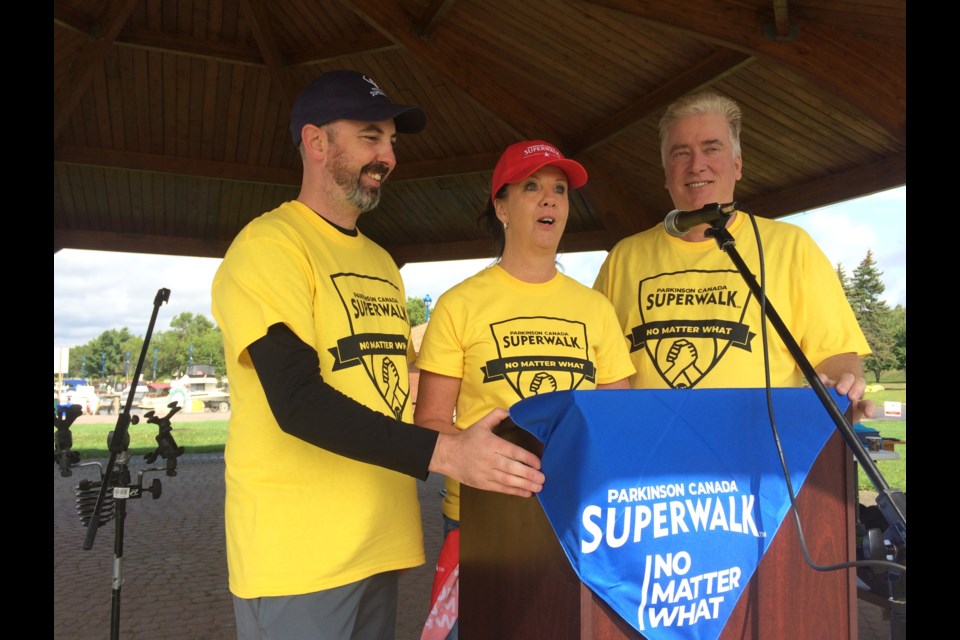Every day in Canada, an average of 25 people is diagnosed with Parkinson’s Disease, and that number is expected to grow.
Money raised through fundraisers like the annual "Parkinson Canada Superwalk" helps to ensure that research can continue in the hope of one day finding a cure.
Until then, advancements in medications and even surgery through research are making a difference.
The Mayo Clinic defines Parkinson’s disease as a “progressive nervous system disorder that affects movement. Symptoms start gradually, sometimes with a barely noticeable tremor in just one hand.”
In the early stages, a person’s face may show “little or no expression, arms may not swing when walking and speech may become soft or slurred.”
This marks the fifth annual Parkinson Canada Superwalk held in North Bay.
Event organizer Wendy Prieur says this year’s national theme centers on everyone fighting together “No Matter What.”
“And that applies whether you are a person living with Parkinson’s or a caregiver. We want to really celebrate all the caregivers because they are the real heroes in this journey. And then all of the loved ones who are supporting the family.”
Prieur and her family know the toll this disease can take on an individual and family members.
“For me personally, my father-in-law suffers from Parkinson’s. There have been significant changes. It has affected his mobility as far as being able to walk. He does have the shakes, but mostly what I see is really mobility issues,” said Prieur.
“There is a tremendous amount of medication and he also had the brain stem surgery a few years ago to help delay some of the symptoms. And that went really well.”
Which is why she says it is important to put money into research.
“There is some really leading-edge technology that is happening. If it wasn’t for raising funds, there wouldn’t be that money going into research nationally. So, I think it is important for people to see that there was a direct benefit to someone in our own community.”
Following a moment of silence, “No Matter What” bandanas were handed out with different colours identifying whether they are someone living with Parkinson’s disease, a caregiver, loved one or extended family member and friends.
“All of the money raised goes to Parkinson Canada and it is used for research and to create literature for people who are looking for support. But almost all of it is going to research which is great,” explained Prieur.
“None of it stays locally because it all really needs to go to research and finding a cure.”
There is a support group in North Bay.
“What we see locally is that there are more males with Parkinson’s than females.”
In North Bay, the walk raises an average of $10,000.



